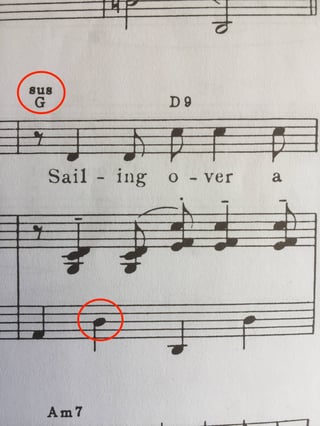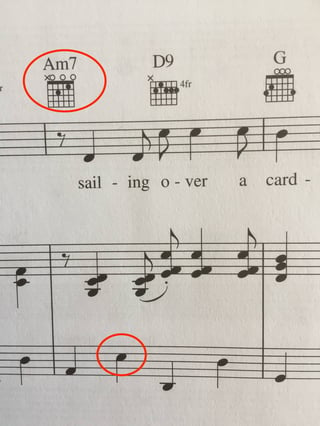I like to make lead sheets of songs like this to learn to improvise from, condensing the published sheet music down to a single page with no turns. In working from my two copies of It's Only A Paper Moon I ran into this difference
It's a subtle difference, but an interesting one. But who decided it? I can see the guitar chords being added by some editor, and I understand there are different chord choices to describe a given half-measure of notes. But are the notes themselves usually Harold Arlen's, or somebody else's? And who would have made that decision to change the bass note to fit their chord choice better?
The first source, The Harold Arlen Songbook, lists a David Bickman as the editor, and the second source The Great American Songbook - The Composers, doesn't list an editor, though both are published by Hal Leonard.


